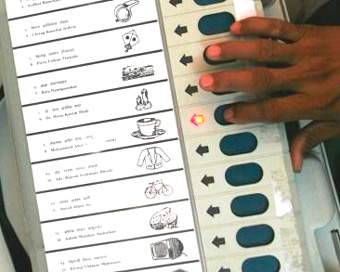 PM Modi visit USA
PM Modi visit USA Only the mirror in my washroom and phone gallery see the crazy me : Sara Khan
Only the mirror in my washroom and phone gallery see the crazy me : Sara Khan Karnataka rain fury: Photos of flooded streets, uprooted trees
Karnataka rain fury: Photos of flooded streets, uprooted trees Cannes 2022: Deepika Padukone stuns at the French Riviera in Sabyasachi outfit
Cannes 2022: Deepika Padukone stuns at the French Riviera in Sabyasachi outfit Ranbir Kapoor And Alia Bhatt's Wedding Pics - Sealed With A Kiss
Ranbir Kapoor And Alia Bhatt's Wedding Pics - Sealed With A Kiss Oscars 2022: Every Academy Award Winner
Oscars 2022: Every Academy Award Winner Shane Warne (1969-2022): Australian cricket legend's life in pictures
Shane Warne (1969-2022): Australian cricket legend's life in pictures Photos: What Russia's invasion of Ukraine looks like on the ground
Photos: What Russia's invasion of Ukraine looks like on the ground Lata Mangeshkar (1929-2022): A pictorial tribute to the 'Nightingale of India'
Lata Mangeshkar (1929-2022): A pictorial tribute to the 'Nightingale of India' PM Modi unveils 216-feet tall Statue of Equality in Hyderabad (PHOTOS)
PM Modi unveils 216-feet tall Statue of Equality in Hyderabad (PHOTOS)India Open Competition in Shotgun, organised by the National Rifle Association of India (N
- Hockey India names Amir Ali-led 20-man team for Junior Asia Cup
- Harmanpreet Singh named FIH Player of the Year, PR Sreejesh gets best goalkeeper award
- World Boxing medallist Gaurav Bidhuri to flag off 'Delhi Against Drugs' movement on Nov 17
- U23 World Wrestling Championship: Chirag Chikkara wins gold as India end campaign with nine medals
- FIFA president Infantino confirms at least 9 African teams for the 2026 World Cup
All you need to know about EVMs Last Updated : 08 Apr 2019 10:44:23 AM IST 
With leass than a week to go for the Lok Sabha elections, know some interesting facts about Electronic Voting Machines (EVMs).
* An EVM consists of a control unit and a balloting unit connected together by a cable. The control unit belongs to a polling officer while the balloting unit is kept in a compartment to cast votes.
* After the polling is over, the results can be known instantly at the counting station by pressing the "result" switch which is located in a sealed compartment of the control unit.
* EVMs are manufactured by two Central government undertakings -- Bharat Electronics Limited and Electronics Corporation of India Limited.
* EVMs were first used at 50 polling stations in a by-poll at the Parur Assembly constituency in Kerala in May 1982.
* EVMs could not be used after 1983 after a Supreme Court ruling that necessitated legal backing for the use of voting machines. The law was amended by the Parliament in December 1988, empowering the Election Commission to use voting machines.
* In the 2004 Lok Sabha polls, 10.75 lakh EVMs were used across all polling stations in the country. Since then all elections are conducted by EVMs.
* EVMs can even be used in areas with no electricity, as they can be operated on alkaline batteries.
* Elections can be conducted via EVMs provided the number of candidates does not exceed 64. An EVM can record a maximum number of 3,840 votes.IANS New Delhi For Latest Updates Please-
Join us on
Follow us on








172.31.16.186







